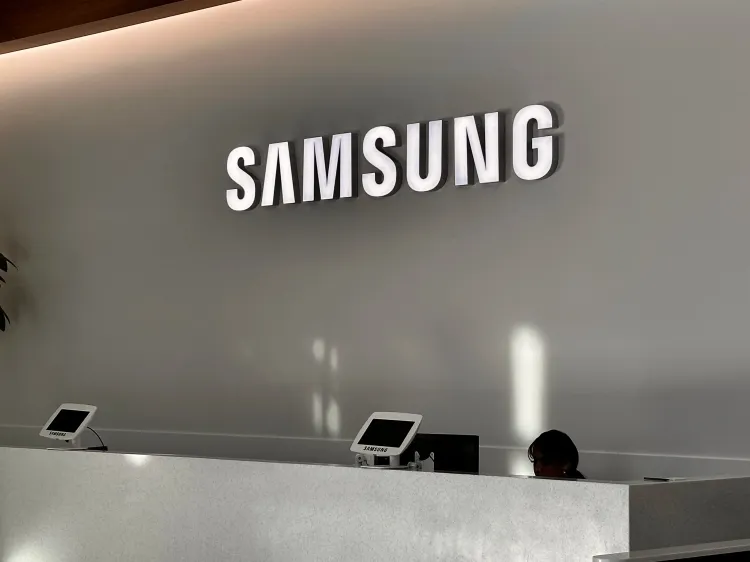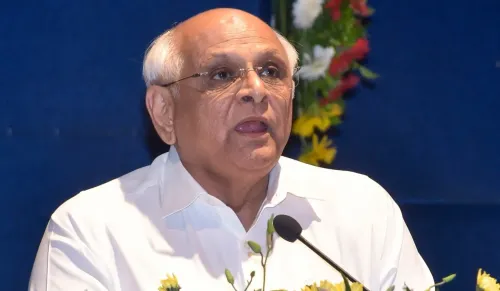Samsung Explores Strategies to Mitigate Impact of U.S. Tariffs

Synopsis
Key Takeaways
- Samsung Electronics may need to adjust its production strategy.
- New U.S. tariffs could heavily impact their smartphone business.
- Production might be increased in India, Brazil, and South Korea.
- Brazil is considered an attractive hub due to its lower tariffs.
- Samsung is taking a cautious approach while evaluating its options.
Seoul, April 6 (NationPress) The tech behemoth Samsung Electronics may be required to revamp its global manufacturing approach due to newly imposed U.S. reciprocal tariffs that could severely impact its smartphone sector, according to industry insiders.
Recently, U.S. President Donald Trump unveiled intentions to enforce a minimum 10 percent 'baseline' tariff on all imports into the United States, alongside country-specific 'reciprocal' tariffs that include a steep 25 percent duty for South Korea.
The reciprocal tariffs, which encompass most product categories with a few exceptions such as vehicles, semiconductors, and pharmaceuticals, are slated to be implemented starting Wednesday (U.S. time), as reported by the Yonhap news agency.
Industry experts have pointed out that Samsung Electronics must adapt to the U.S. tariff landscape by leveraging its strategy of diversifying its production locations.
As the largest smartphone manufacturer globally, Samsung produces approximately half of its smartphones in Vietnam, where it faces a hefty 46 percent reciprocal tariff on products entering the U.S. The remainder of its smartphone manufacturing is distributed across India, Brazil, Indonesia, and South Korea.
India is subject to a 26 percent tariff, South Korea a 25 percent tariff, and Brazil only a 10 percent tariff, positioning it as a potentially appealing hub for supplying the U.S. market.
Insiders indicate that Samsung Electronics might contemplate ramping up production in India, Brazil, and South Korea, particularly for high-end models aimed at American consumers.
Brazil is especially noteworthy due to its minimal tariffs and geographic closeness to the U.S.
The company is anticipated to reevaluate its production strategies before the summer rollout of its next-generation foldable smartphones; however, it is currently taking a cautious approach.
“No definitive decisions have been made,” remarked a spokesperson from Samsung Electronics.
South Korea's economy is likely to encounter challenges as the U.S. administration's plan to implement reciprocal tariffs is expected to inflict serious damage on the country's exports to the U.S., while significantly disrupting the global market, which could adversely impact South Korean exports, according to local analysts.
Concerns have been raised about South Korea's export-reliant economy as the Trump administration continues to introduce protectionist trade measures, including 25 percent tariffs on all steel and aluminum imports, as well as equally high duties on foreign-made automobiles.










